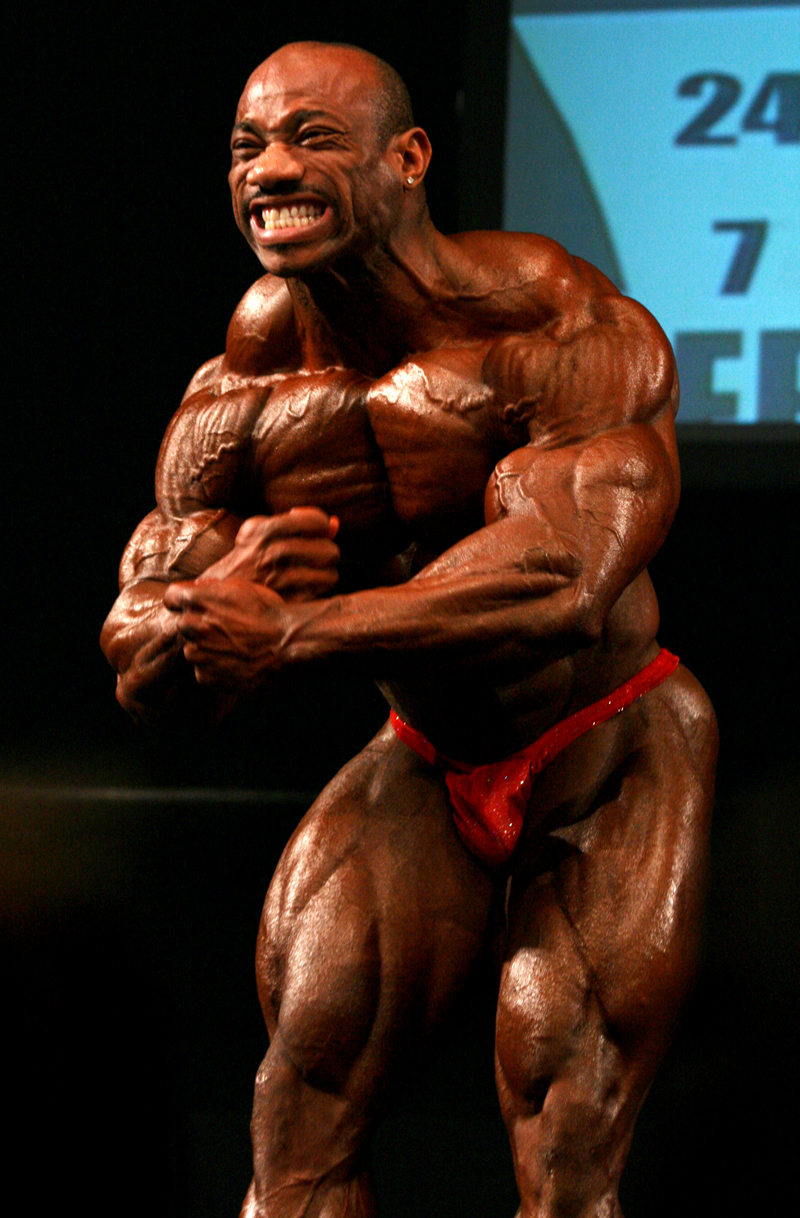Written by Amir Fazeli
“Watch your thoughts, they become words; watch your words, they become actions; watch your actions, they become habits; watch your habits, they become character; watch your character, for it becomes your destiny.”
If you look at the cross-section of every sport out there and the ones who dominate that sport, you see that there isn’t much separating them physically. The one who consistently kicks ass is just a natural-born competitor. I once had the pleasure of coaching my friend and first wrestling coach, Hassan Shahsavan. Hassan is an Olympic-level Greco Roman Wrestler and used to wrestle for Iran. He represented both Iran and Australia at not one, but two, Olympic Games. I’m not sure how much you know about wrestlers, especially those who come from the dominating nations, but what I can tell you is this: There is NO human being harder to kill than a wrestler. The work ethic and pain threshold they possess is downright ridiculous. Anyway, I was talking with this athlete one day about top-level competition. He said that at the world level, the wrestling ability of wrestlers is pretty much the same. They are pretty much equal as far as technical ability and physical capability goes; the only thing giving one the edge over the other is the mindset on the mat.
There is a story that when Arnold first came to America, people would look at him and say, “We never want to look like you.” He would look at them and reply: “Don’t worry. You never will.” This so clearly distinguishes the difference in mindset between an armchair lifter and a serious lifter. It even distinguishes the mindset between the national to the regional to the world-level athlete in any sport. The contender and the champion. It reminds you of the guy or girl who watches you train day in and day out and tells you (almost in pity) that you are too obsessed. They could never understand, even if you sat down and explained the “why” to them. This illustrates the ignorance about what it takes to truly do something awesome. to reach new heights and write history books.

It seems in this new information age in which the Internet puts information at your fingertips, up-and-comers are putting the cart before the horse. The wide exposure of powerlifting, weightlifting, and the rest of the iron sports in recent times is an awesome thing to have happened; however, with it comes some crap that hasn’t been filtered. Recreational lifters see serious weight being shifted by other people much like them (same age, same weight), and think: “Well, I can do that too. I’m going to give it a shot.” They step into a sport traditionally reserved for men and women with a gorilla mentality. These recreational lifters have very unrealistic expectations about results and timelines, or they plain mistake their training experience with those who dominate the sport and think they can apply the same training concepts — or worse yet, the same training routines — and get the same result. How many times have you heard lately about that lifter who has started a “Bulgarian Method” program after just 3 months of serious lifting and completely broken down? The majority just follow the trend with no real direction.
If you are lifting just recreationally and are having fun with it, you pretty much can stop reading here. Keep doing what you are doing and have fun with it. You don’t really care about being the next world-record holder or world champion in your chosen strength sport. You just like the feeling it gives you to train and get incrementally stronger regardless of however long that takes you, and that’s awesome. (Ironically it’s these people that often make the most progress versus the ones that want 3 years worth of results in 3 months).
However, on the flip side, if you are training with serious intentions, then your mindset must reflect it. This is regardless of whether the goals are body composition related or strength and power related. Sooner or later, the going will get tough; when it does, are you going to be tougher and keep going? Will the road block you face conquer you or will you conquer it? This can be in the form of physical pain or soreness or mental fatigue; that’s when the stories you tell yourself of why you must stop training begin to roll in.
At my training facility, Adonis Athletics, we see them all. Over the past 4.5 years of operation, we have had close to 600 athletes come through our door with varying goals. When they first sit down with me, one of the first questions I ask them is: “On a scale of 1 to 10, how motivated are you to really reach your goal?” The answer is pretty much never less than an 8 out of 10 to start with. I consider that a healthy and a high level of motivation. And their training initially reflects this motivation; they are in there day after day ripping it up and kicking ass on an introductory program that is aimed at just getting them in better general condition. Easy, right?
Soon, the program’s focus changes to target the athlete’s ultimate goal more specifically. Weights start to get heavy. Duration of sessions go up. Volume becomes dizzying — all planned and executed appropriately, of course. More is demanded from the athlete to get them to their goal. Suddenly, they are out of their comfort zone, and the excuses start to come pouring in:
- “I have adrenal fatigue.” No, you don’t.
- “My back is sore, maybe it’s broken.” No, it’s not.
- “I’m not getting the weight I WANT for the reps I WANT. Maybe I should take a few days off.” Maybe you should follow the program not the ego.
Soon enough, these people break, and their motivation can go from a 10/10 to a 1/10 simply because of unrealistic expectations and/or an inability to set proper goals and be consistent.
They have forgotten that greatness comes through doing the little things over and over and continuously chipping away until you get what you want — regardless of whether that thing is world champion status or to lose 10kg. The only thing that changes is the plan and the length of time you have to keep chipping away for.
Like the saying goes: Every successful person is a 10-year overnight success. Right? You didn’t see what they were doing behind closed doors. The extra time they put into practice. The sacrifices they made cutting from socializing, their friends, and family. The injury after injury and pain they had to patch up and cover and push through. All you saw was someone almost coming out of nowhere and wiping the floor with everyone. I remember reading a study on how long it took the average bodybuilder to get his or her pro card. The study found that from the very first show to when they stepped on stage at a high level like the Olympia, it took an average of 10.1 years. Yeah, 10.1 years with on-point training, on-point nutrition, and on-point recovery methods. Meanwhile, you got Timmy over here eating nothing but cheese and tomato sandwiches twice a day then bitching about why he “can’t put on any size and strength” after 6 months of half-assed training.

If you truly want to become good in your chosen field, it’s not enough to love the training that you do. You have to have the mentality to accept that things are going to get hard. You won’t just have shit days; sometimes, you will have shit weeks. You’ll have days where you don’t feel like squatting 90% for reps, days where you don’t feel like doing a HIIT session at the end of your tough weight training to strip some more fat. But you made the choice, YOU did. You looked yourself in the mirror one day and said: “I want to be bigger/badder/ripped/stronger/a champion.” So at least try to see it through all the way. Once you do, it builds momentum. Once you get into the habit, it will create a domino effect, and eventually you won’t want to stop even if you were given the option to. The hardest part of pushing a car is the first few steps; once the wheels are rolling, all you have to do is keep up the momentum.
If you’re willing to do what it takes, the next step is adopting a proper mindset and setting goals.
This is the first step and probably the most important part of your journey. First, you need your “why.” When your why is strong, you will not give up, and you won’t quit. The why is different for everyone. Start with an ultimate outcome for the level you are at. I have found when athletes aim too big, too soon, they lose motivation quicker.
For example, if you have started powerlifting and your lifts are competitive only at the local level, then don’t immediately have the goal to be world champion. It’s too intangible. Instead, initially aim to have the country’s squat/bench/deadlift/total record. Aim to put 50kg on your total in the next 6-8 months. Aim to enter three competitions in the next year and improve in every single one. These are the things that are much easier to measure, and they are closer in time frame, meaning you stick to your training and your plan.
If you immediately choose to aim to be world champion, it’s way out of your league. You don’t have any proximity to it, no sense of what you need to do to get there. You haven’t crossed the 50 bridges before it to estimate the landscape of how much work that goal requires. You simply do not have enough experience.
Some years ago, an athlete came to me with the intention of training to compete in powerlifting. He was very young and very talented, but equally uncalculated and hard-headed. He had this crazy idea that he wouldn’t compete until he trains and trains and trains and gets his lifts to all be world records. Then, he would stroll into his first comp and take all the world records. Several people explained to him that it doesn’t work like that. You see, this kid didn’t have the experience to understand what it takes to get to that level. Life was a Rocky movie montage to this guy. He eventually chose to relocate his training somewhere else with other coaches that would promise him this unicorn of an idea. Months later, news came that he managed to injure himself pretty badly, completely putting him out of squatting and deadlifting indefinitely.
There was nothing wrong with his goal: Ambition is awesome. Where he slipped was he hadn’t paid the cost to be the boss. An army general is a general because he’s been in a couple of gun fights. He’s seen his life flash before his eyes, and his friends have died in his arms on the battlefield. He knows what the next move is going to be. He knows what has to be done next, what to prepare for, and how his mentality must be.
The better way to set goals is to start by realistically judging what level you are at. Are you out of your league with your current goals? If so, then re-evaluate your goal. Once you set yourself a goal within your “league,” set out to achieve that, then move to the next one in your newly achieved “league.” Move up incrementally until your league is now world level or whatever level relates to your goal. Then you have it in sight. You have travelled the road you needed to travel and gathered the experience you needed to gather to feel and know what is required for you to finally obtain your goal.
Yes, you have to have a clear ultimate goal in your mind, something you want to aspire toward, such as getting your pro card in bodybuilding. Once you know that, then you have to break it down and pretty much reverse-engineer it into chewable, bite-size pieces so you don’t become overwhelmed and so you can start travelling that road to where you want to go. Once you pass one milestone or checkpoint, you look to the next milestone with the ultimate goal still in the back of your mind. Start with a local show at amateur level with no particular outcomes in mind except to train your ass off and come in as ready as possible. See what happens. When you pass that checkpoint, set your eyes on the next comp or two at the regional level or the next division up. Each show and contest give you more experience. This is how you prevent yourself from becoming overwhelmed and reduce chances of mental burnout and physical injury. This is the type of goal-setting we promote at Adonis Athletics, and this is why our athletes top their sports with both domination and consistency.
Related Articles
[Strong360] Reclaiming Real Strength
Do You Have the Courage to be Great?
Amir is the founder and owner of Adonis Athletics, a performance training facility in Sydney Australia with 2 franchises specialising in the strength and conditioning of athletes, strongmen, powerlifters, weightlifters and bodybuilders. He holds a Bachelors and Masters degree in Sport & Exercise Science specialising in Sport Performance. Amir is a competitive powerlifter having represented Australia at 5 international competitions to date including twice at the Arnold Sports Festival. His best lifts are 258kg squat, 145kg bench press and 310kg deadlift at under 83kg. He holds the all-time highest deadlift record at under 83kg bodyweight across all federations in Australia. His best international results are silver medal 2012 IPF Oceania Powerlifting Championships, silver medal 2014 Arnold Sports Festival, gold medal 2014 IPF Asian & Oceania Powerlifting Championships






